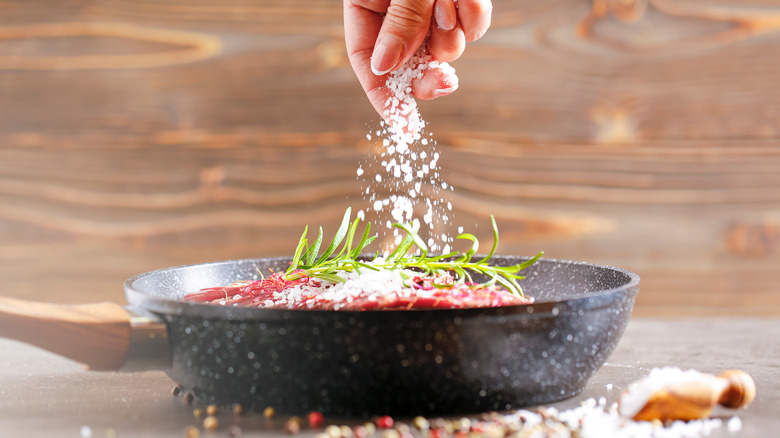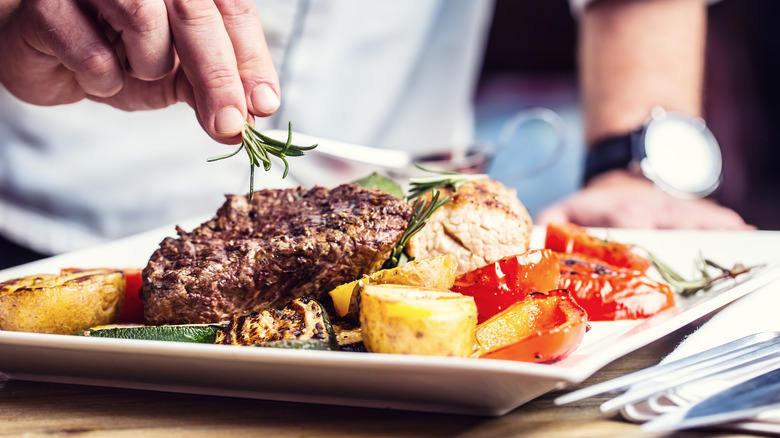Can Acidity Fix Oversalted Food?
While it is arguably the single most important ingredient in your kitchen that enhances all flavors, salt is used incorrectly in many homes (and some restaurant kitchens, too). Harnessing the power of salt for good will result in great-tasting food with nuanced flavors coming to the forefront thanks to the addition of that key salinity. Conversely, many people get spooked when it comes to salt and don't use anywhere near enough, resulting in bland, unexciting dishes. Then, there are people that go overboard — accidentally or otherwise — and end up with way too much salt on their food.
If, or when, this issue befalls you (it happens to the best of us), do not fret: There are many tips and tricks to help mitigate the issue and make that over-salted dish become perfectly palatable. If you've made something that ended up being extraordinarily salty, there may be a way to fix it.
How to tone down the saltiness
One great way to mitigate saltiness? Acid. According to chef Curtis Stone, who spoke on "The Rachael Ray Show," you can opt for acid in the form of vinegar to lessen the impact of the salt. And think of the dish you're serving: Are you making tacos? Use lots of guacamole to help drown out the saltiness of the protein, per She Knows. Over-salted your chicken? Make a sauce, such as béchamel or tomato, for balance. Accidentally made a super-salty pot of potatoes? Serve them with under-seasoned vegetables. There are lots of different tricks you can use in your kitchen to try to balance flavors.
The sharp bite of the acid should help counteract or "cut through" the saltiness. Although it may not remove the saltiness entirely, the acidity itself could do a good job of masking the salt, helping to make the dish more balanced and palatable.
Other non-acid options? Add stock, something sweet, or something starchy, or other ingredients that will soak up the excess sodium, as noted by The Washington Post. Also, taste, taste, taste throughout the cooking process to ensure the salt doesn't become overbearing in the first place. It's better to start off slow and build up, rather than trying to fix over-seasoning.

